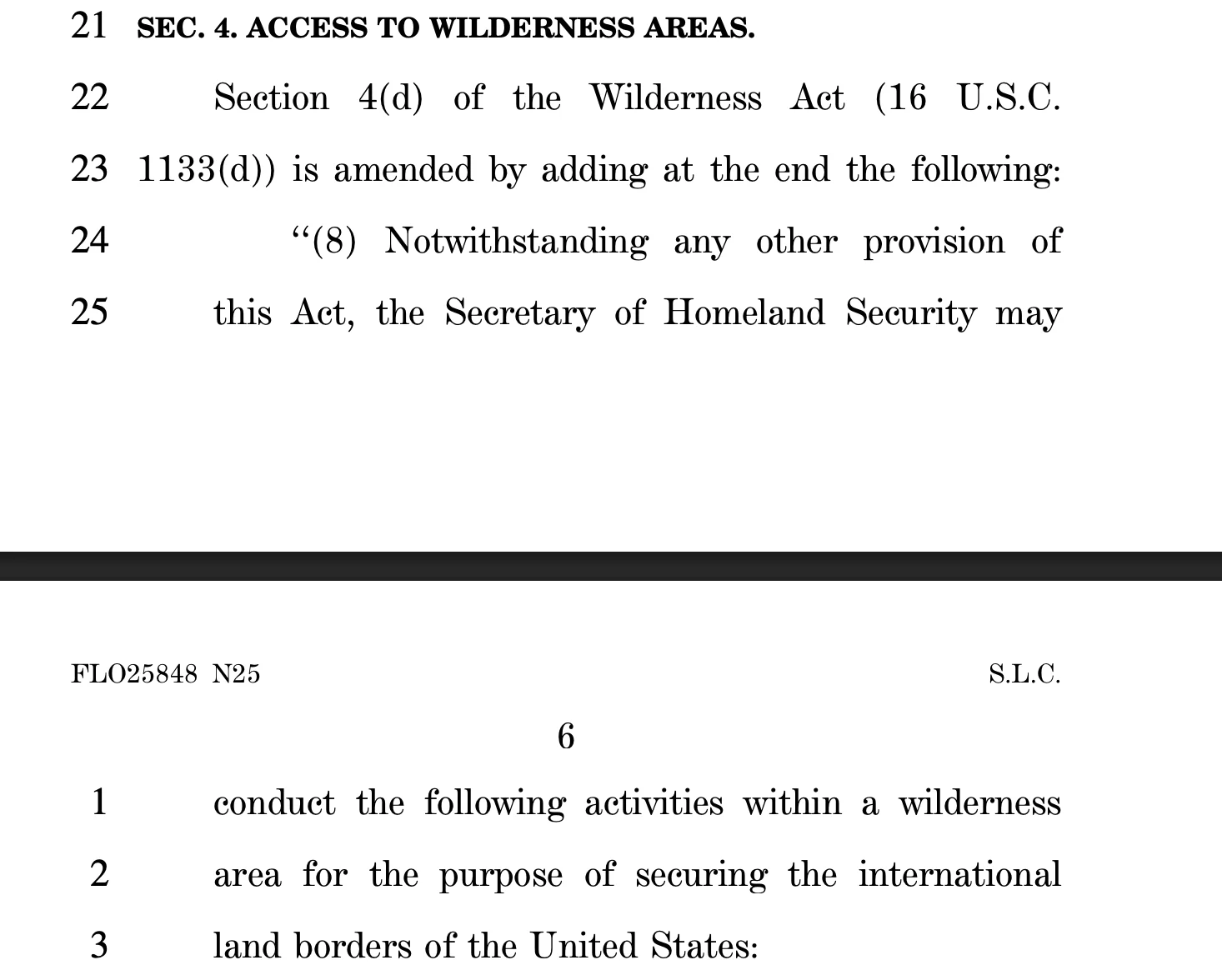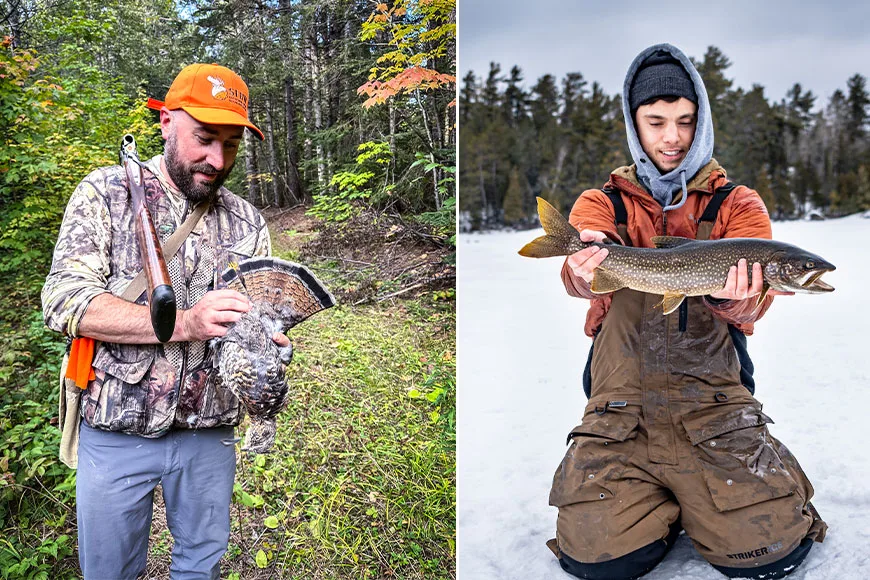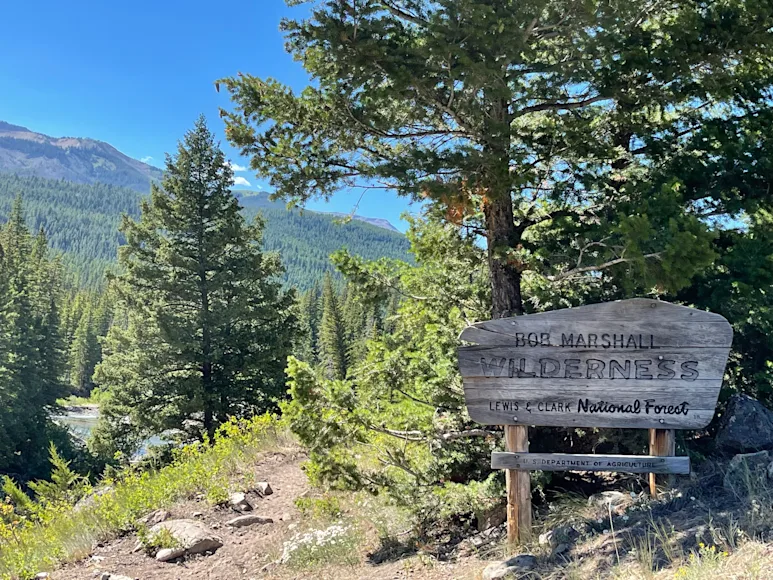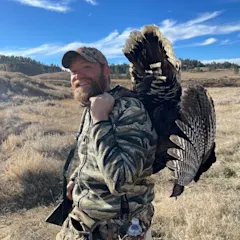Back in June, Sen. Mike Lee failed in his unprecedented attempt privatize some 3.5 million acres of federally managed public lands across the West after hunters and anglers erupted in opposition to the plan. Now the Utah lawmaker is back with a new bill that would bring roads, video surveillance systems, fences, and bridges to a vast swath of federally designated wilderness areas on both the northern and southern borders of the United States.
Lee, who chairs the Senate Committee on Energy and Natural Resources, unveiled the bill on Thursday, October 2. Co-sponsors include fellow Republican senators Ted Cruz of Texas, Cynthia Lummis of Wyoming, John Barasso, also from Wyoming, and Rick Scott of Florida. In a press release, Lee framed the measure as an attempt to clamp down on “border chaos” that he says is “destroying America’s parks and public lands.”
The bill's text says it will increase the Department of Homeland Security’s access to federally managed public lands so that the agency can gain “operational control” of a massive corridor of public land that extends 100 miles across both borders. It would amend the 1964 Wilderness Act to allow Homeland Security to build roads and use motorized vehicles in federally designated Wilderness Areas. Currently, there is no motorized access allowed in the vast majority of Wilderness Areas, which protect some of the best remaining public land hunting and fishing opportunity in the United States.
Lee’s bill would empower border patrol agents to conduct patrols using aircrafts for approach, landing, and takeoff, and to “deploy tactical infrastructure.” Such infrastructure is defined in the bill as “observation points, remote video surveillance systems, motion sensors, vehicle barriers, fences, roads, drainages, and detections devices.” DHS needs to implement these measures, the bill claims, "to prevent unlawful entries to terrorists and other unlawful aliens."

Widespread Opposition from Hunters and Anglers
A slew of sportsmen’s groups have come out against Lee’s bill since he introduced it last week. According to to Devin O'Dea, the Western Policy and Conservation Manager for Backcountry Hunters & Anglers, the primary purpose of the bill is to build and codify new roads in wide swaths federally protected wilderness areas—and to generally weaken the Wilderness Act—under the guise of border security and national defense.
"There are already existing authorities through a couple of different laws—like the Real ID Act and a 2006 MOU between the DHA, DOI and USDA—that give the Sec. of DHS the ability waive all legal requirements that would impede the construction of border [walls] in areas of high illegal entry," O'Dea tells Field & Stream. "Those authorities have been used by Bush, Trump, and Biden. They are tried-and-true, and tested in the courts, but they're generally limited to areas of high illegal entry within about 25 miles of the border."
When compared to the existing authorities that DHS already uses to operate in wilderness areas, Lee's bill is vast and sweeping, O'Dea says. It would weaken wilderness protections in some of the nation's most cherished wilderness areas. That includes wilderness units of Glacier National Park, the North Cascades Wilderness, wilderness in the Adirondacks of upstate New York, the Organ Pipe Cactus Wilderness in Arizona, and the Boundary Waters Canoe Area Wilderness in northern Minnesota, just to name a few.

Braxton McCoy, who heads a newly-formed, right-leaning conservation group called the Sage Brush Institute, is also raising alarm bells about Lee's latest bill. "It seems like he's using another pet issue to further whatever end he's actually after," McCoy tells F&S, likening Lee's current bill to his attempt to use the affordable housing crisis to force a massive public land sell off on the American people last summer. "As right wingers, we want the border closed. But I doubt that that's his actual intention here. They want to let DHS bypass NEPA and all of these different protection acts. And why do they need jurisdiction over everything that falls within 100 miles of the northern and southern border."
To put it in perspective, McCoy pointed to federally managed public lands with wilderness protections in northern Montana that are prized for elk, mule deer, bighorn sheep, and other highly sought hunting opportunities. "If you drew a straight line south from the Canadian border, you’d be pretty close to Augusta, which sits at the gates of the Bob Marshall Wilderness complex in the Lewis and Clark National Forest," he added. "When you add up everything he's asking for with this bill, it's approaching 10 percent of the US land mass."
Read Next: Why Our Best Public Lands for Hunting and Fishing Are At Risk—Again
According to O'Dea, the bill also forces land management agencies (already stretched thin by layoffs and funding cuts) to maintain and monitor new road systems in wilderness areas. "The true aim of this bill is to override the Wilderness Act," he says. "It will codify and build new roads in our wilderness areas and to then hit our federal land agencies—which have already been gutted—with unfunded mandates to manage new roads, which they'll be hard pressed to implement."


